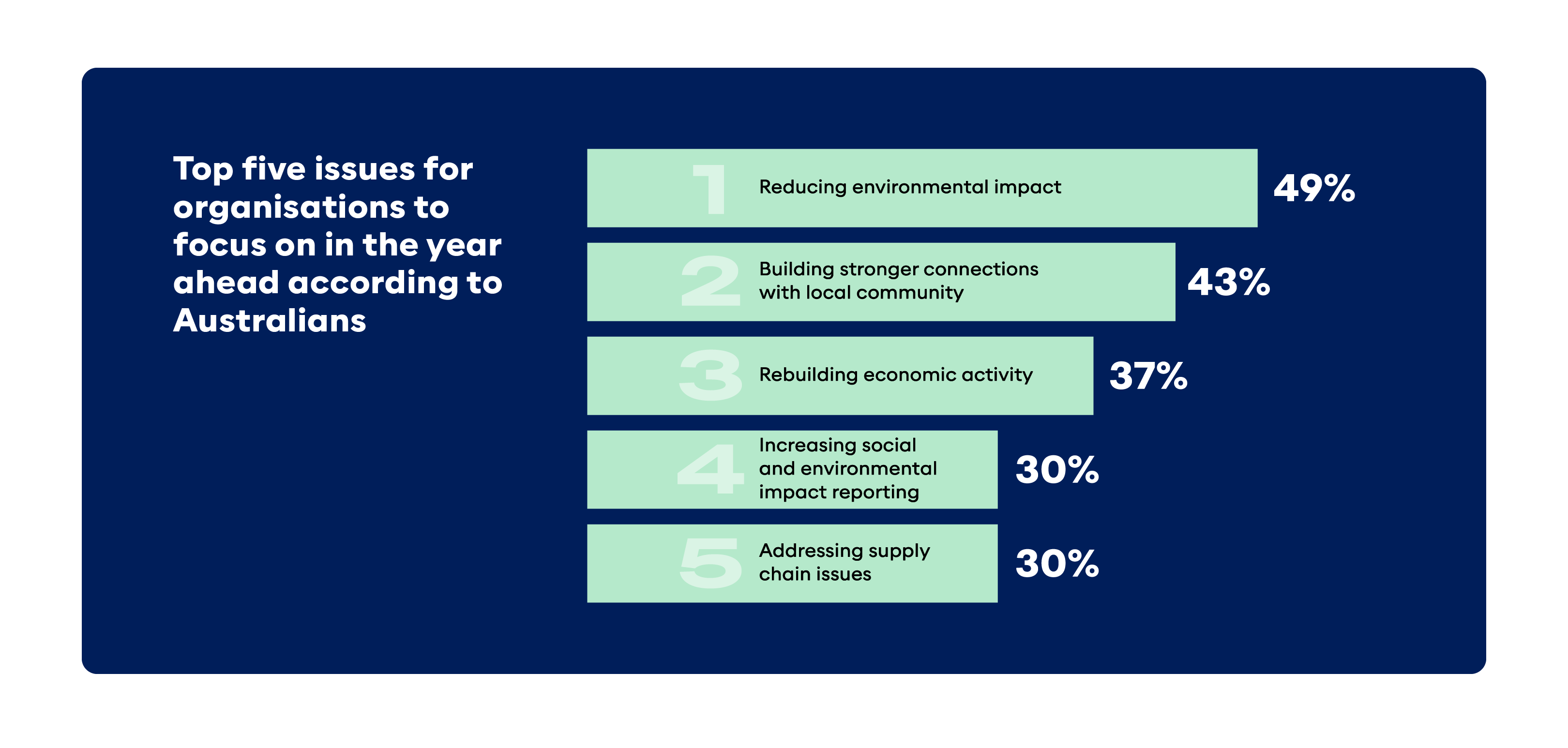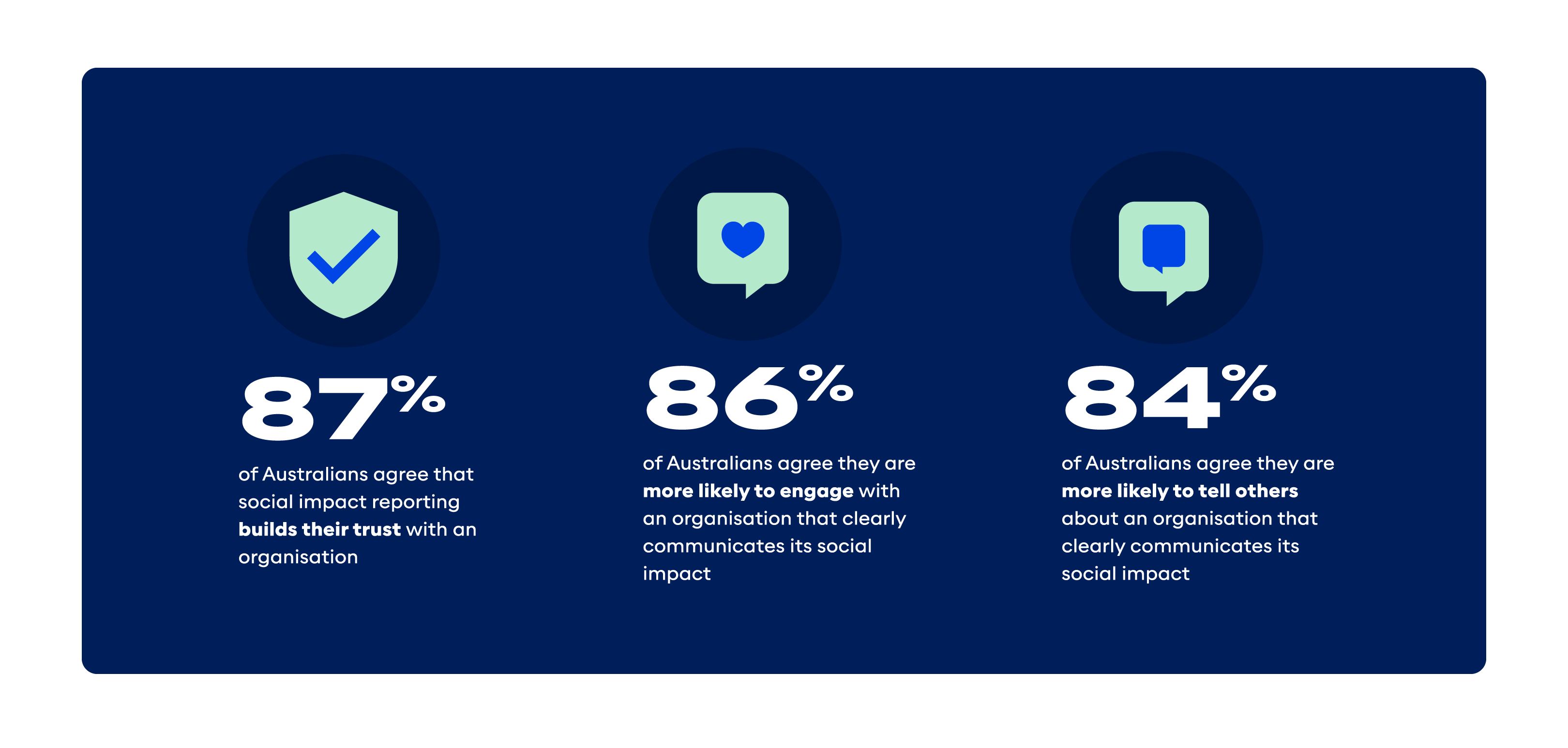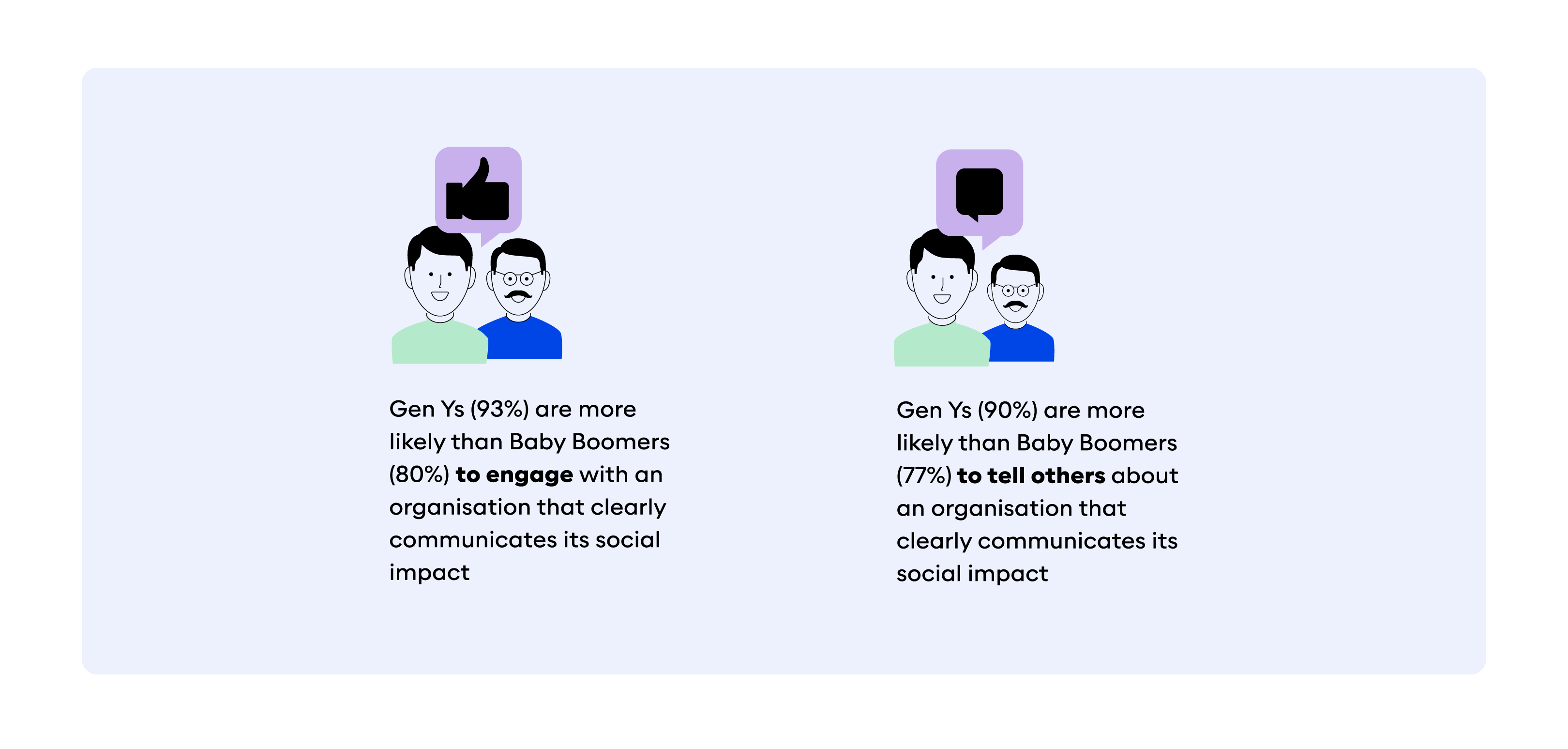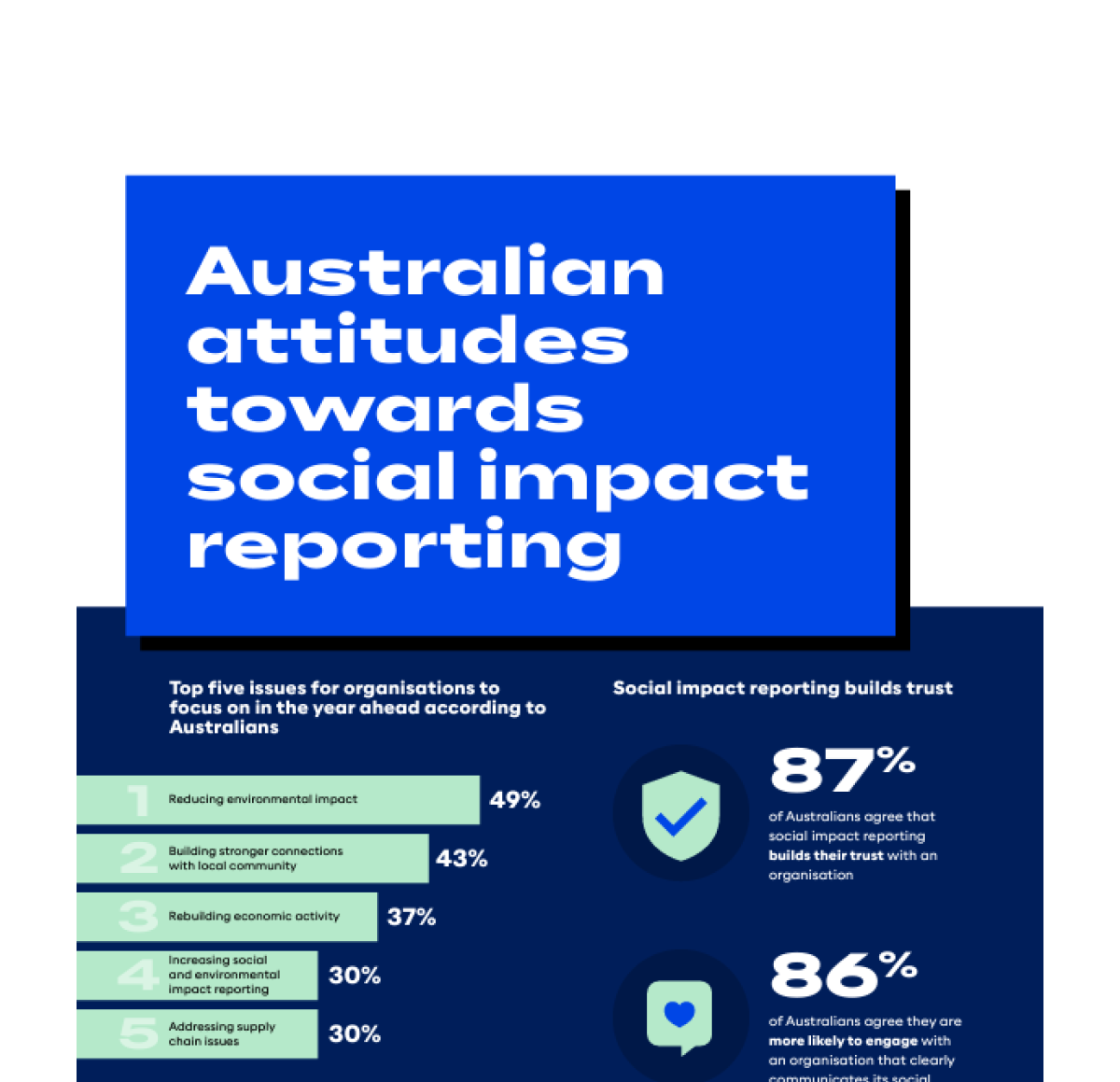The what and why of social impact reporting

The social landscape of Australia and context within which organisations operate has fundamentally shifted. The shared experience of COVID-19 has caused many to re-evaluate their life, and in response many are trying to live more in line with what they value. This has seen a renewed desire for community and a growing collectivist mindset.
We believe the renewed desire for community and the rise in social impact reporting are connected. The last two years have highlighted how interdependent society is and social impact reporting is a demonstration of an organisation’s accountability to the community and a measure of its actions on society. Alongside this is the rise of the circular economy, and a growing awareness of the lifecycle of products, services and the impact on the environment. It is in this context that individuals and communities are calling organisations to account for their impact on the local and global community.
Growing focus on social impact reporting
Across the business sector the importance of reporting on social impacts is growing. Not-for-profits are not exempt from this with more than nine in ten Australians (91%) expecting charities/not-for-profits to provide the same reporting metrics as other Australian businesses. In fact, increasing social and environmental impact reporting is one of the top five focuses for organisations this coming year according to Australians.

So, what is social impact reporting?
Social impact reporting is the process of communicating not just the activities undertaken by the organisation but the outcomes and changes that have occurred because of it. It aims to help companies demonstrate how they are creating positive social and encourages organisations to be accountable to their impact on stakeholders, individuals, and local and global communities. As it is a relatively new field, there is still low awareness about it within the community. Australians are, however, most likely to have heard of and be at least somewhat familiar with ESG (Environmental, social and governance) (32%), and social impact reporting (31%). Almost a quarter have heard of and are at least somewhat familiar with the term social license to operate (24%), while 22% have heard of and are at least somewhat familiar with the term triple bottom line (which refers to people, profit and planet).
Social impact reporting builds trust
Social impact reporting is important as it affects individuals’ decisions about engaging with and supporting an organisation. For almost nine in ten Australians, social impact reporting builds their trust with an organisation (87%). They are also more likely to engage with an organisation that clearly communicates its social impact (86%). More than four in five (84%) say they are more likely to tell others about an organisation that clearly communicates its social impact.

Younger Australians driving the rise of social impact reporting
The desire for and awareness of social impact reporting is stronger among younger Australians. More than nine in ten Gen Ys (93%) are more likely to engage with an organisation that clearly communicates its social impact compared to 80% of Baby Boomers. Social proofing is also more likely to occur, with younger Australians more likely to tell others about an organisation that clearly communicates its social impact (90% Gen Y cf. 86% Gen Z, 85% Gen X, 77% Baby Boomers).

The role of charities, corporations and government in our lives is broadly supported, but this status comes with responsibility to steward it well. Once, the fulfilling of social obligations was assumed, now it must be demonstrated. In an era of rising scepticism and declining trust, social impact reporting is a way for organisations to build trust, engagement and communicate their value.





